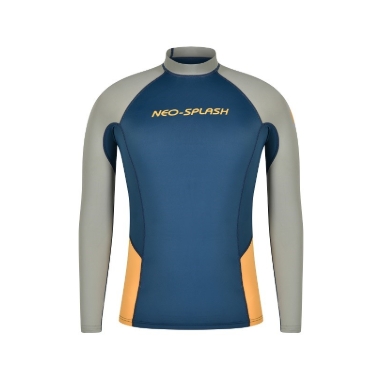Is it important to wear rashguards and why?
-
1. UV Protection
Wearing a rashguard is highly important for divers. Firstly, it offers exceptional UV protection. Made of fabrics with a UPF rating of 50 or higher, rashguards block at least 98% of UV rays. A long-sleeved one provides even more protection.

2. Rash Protection
Rashguards also act as a protective layer between your skin and your wetsuit, which can have seams that rub and irritate you.
3. Get in and Out
A scuba diving rashguard is a tight-fitting shirt made of lycra or nylon that helps to prevent chafing and sunburn while diving. It is easiest to put on a snug-fitting rashguard to get in and out of a wetsuit. The lycra or nylon material will help the wetsuit slide on easily. Looser-fitting rashguards are often preferred if you’re primarily wearing them as a comfortable cover-up during surface intervals or for activities other than diving.
4. Quick Drying
Scuba diving is a great way to see the underwater world, but it's important to be comfortable while you're doing it. That's why quick-drying snorkeling rashguards are such a great option for scuba divers. Quick-drying rashguards are also ideal. They keep divers warm between dives and prevent sweating on hot days. Moreover, a rashguard enhances the insulation of a wetsuit, helping divers stay warm in cold waters.
5.Improves a Wetsuit’s Insulative Properties
A wetsuit is a must-have for scuba diving in cold water, but it can also be helpful in warm water. The extra layer of clothing helps to insulate the body, keeping divers warm even in cooler waters. A rashguard enhances the insulation of a wetsuit, helping divers stay warm in cold waters.
Last But Not Least
The most common materials used in making rash guards are nylon, lycra, spandex, or polyester. Look for ones that have been treated with a special UV coating to increase their value in protecting against harmful UV rays. Especially it will be better for a rash guard 50UPF+.





